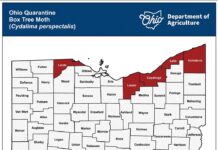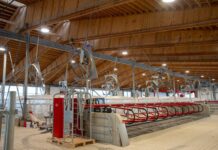As American agriculture grinds through February’s dull weather and even duller commodity markets, two Chinese firms have used the month to make inroads into the American farm and food colossus.
Syngenta purchase
First, on Feb. 3, China National Chemical Corp., known as ChemChina, announced its purchase of Syngenta, the Swiss-based chemical and seed giant, for the equivalent of $43 billion. While that’s a 22 percent premium to Syngenta’s total share price, it’s 10 percent less than Monsanto Co. offered to pay for the firm just last summer.
Livestock changes
Two days later, on Feb. 5, Nebraska’s unicameral legislature voted 34-14 to end the state’s 18-year ban on meatpackers owning livestock for more than five days prior to slaughter.
The move, noted the Lincoln Journal Star, means “Nebraska will now join those states in allowing meat processors like Chinese-owned Smithfield to contract with farmers to raise pigs in large, concentrated operations.”
Economics
Smithfield Foods, owned by China-based WH Foods since 2013, raises and slaughters millions of hogs throughout the U.S. Its record $15 billion in sales last year easily makes it the world’s largest pork producer.
WH Foods and ChemChina are not independent, shareholder-owned firms like the companies they bought. Both are state-owned, both are almost entirely state-financed, and both are driven by national interests as much as by economics.
As such, these companies and their acquisitions are less about geopolitics and international finance and more about owning — or at least controlling — the means to supply China’s 1.4 billion eaters with safe, abundant, and cheap food.
Foreign food
In fact, noted a Feb. 3 New York Times story dissecting the Syngenta deal, China is “very sensitive” to its reliance on foreign food. Three years ago, “30 million Chinese were eating Western-style foods” and now, according to market estimates, “… by 2018, 300 million Chinese [will] be consuming Western-style foods…”
Growing, owning food
That “Western-style” food, however, doesn’t mean Western companies or Western farmers will be in charge. They may grow the food, but they won’t own it.
Indeed, China’s recent moves to lock-up key elements — and Syngenta is just the latest key element — of the West’s food chain is what “feeding the world” will look like in rural America tomorrow: China either owning or controlling the technology used to grow food with American soil, water, and labor.
Technology
I know, I know; you thought you’d be the one feeding China. While that remains partly true, it’s now quite clear that China is buying technology to boost domestic production. Equally clear is that it hopes to make a profit selling you the technology you need to grow the food it will import.
Those clever Reds; the Long March never ended.
Globalization
China’s growing investment in offshore food production is not, however, manifest destiny. It’s just the latest example of how globalization, the freer, legal movement of money and ideas around the world, will shape our collective and individual futures.
It also is a clear signal that American agriculture’s ironclad belief in a “feed the world” future is no longer the future. Oh, we may still feed part of the world, but it’s more likely we’ll do it to honor a contract, not our conscience. This should not be news to anyone who has been paying attention.
Farm policy
American farmers and ranchers played an outsized role in creating this future, a future where the World Trade Organization now has more control over American farm policy than the American Farm Bureau Federation. It’s also where 34 legislators in Nebraska can open the state’s front door to international hog conglomerates despite 1,100 local citizens petitioning them to keep it locked.
Changes
A generation ago neither would have even been considered. Now both hardly raise a yawn. What changed?
The world changed.
Not long ago it bought our production; now it’s buying our means of production. Christopher Columbus was right. The world is flat and getting flatter.













